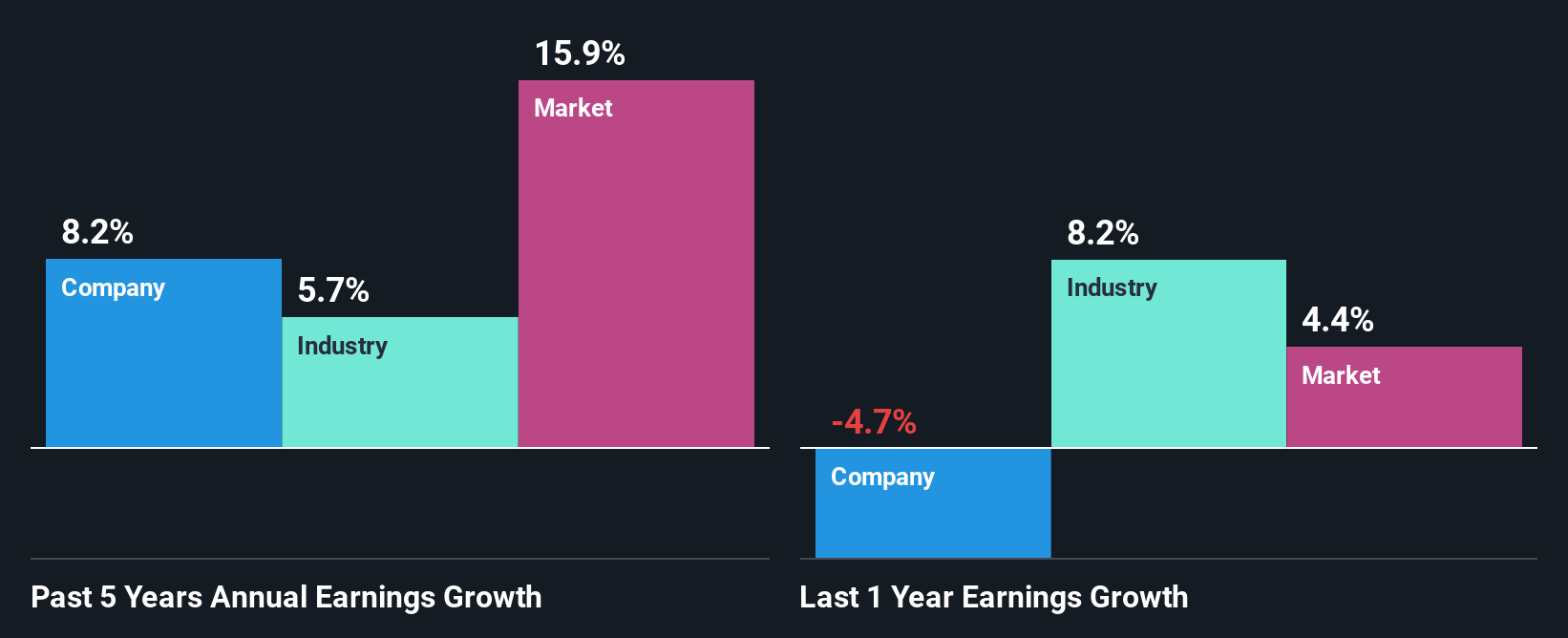Is Unipol Assicurazioni S.p.A.'s (BIT:UNI) Stock's Recent Performance Being Led By Its Attractive Financial Prospects?
Unipol Assicurazioni's (BIT:UNI) stock is up by a considerable 13% over the past three months. Given the company's impressive performance, we decided to study its financial indicators more closely as a company's financial health over the long-term usually dictates market outcomes. Specifically, we decided to study Unipol Assicurazioni's ROE in this article.
Return on Equity or ROE is a test of how effectively a company is growing its value and managing investors’ money. In other words, it is a profitability ratio which measures the rate of return on the capital provided by the company's shareholders.
How To Calculate Return On Equity?
The formula for return on equity is:
Return on Equity = Net Profit (from continuing operations) ÷ Shareholders' Equity
So, based on the above formula, the ROE for Unipol Assicurazioni is:
12% = €1.1b ÷ €9.6b (Based on the trailing twelve months to December 2024).
The 'return' refers to a company's earnings over the last year. One way to conceptualize this is that for each €1 of shareholders' capital it has, the company made €0.12 in profit.
View our latest analysis for Unipol Assicurazioni
What Has ROE Got To Do With Earnings Growth?
So far, we've learned that ROE is a measure of a company's profitability. We now need to evaluate how much profit the company reinvests or "retains" for future growth which then gives us an idea about the growth potential of the company. Assuming everything else remains unchanged, the higher the ROE and profit retention, the higher the growth rate of a company compared to companies that don't necessarily bear these characteristics.
A Side By Side comparison of Unipol Assicurazioni's Earnings Growth And 12% ROE
To begin with, Unipol Assicurazioni seems to have a respectable ROE. And on comparing with the industry, we found that the the average industry ROE is similar at 13%. This probably goes some way in explaining Unipol Assicurazioni's moderate 8.2% growth over the past five years amongst other factors.
Next, on comparing with the industry net income growth, we found that Unipol Assicurazioni's growth is quite high when compared to the industry average growth of 5.7% in the same period, which is great to see.

Earnings growth is an important metric to consider when valuing a stock. The investor should try to establish if the expected growth or decline in earnings, whichever the case may be, is priced in. Doing so will help them establish if the stock's future looks promising or ominous. Has the market priced in the future outlook for UNI? You can find out in our latest intrinsic value infographic research report.
Is Unipol Assicurazioni Using Its Retained Earnings Effectively?
With a three-year median payout ratio of 46% (implying that the company retains 54% of its profits), it seems that Unipol Assicurazioni is reinvesting efficiently in a way that it sees respectable amount growth in its earnings and pays a dividend that's well covered.
Additionally, Unipol Assicurazioni has paid dividends over a period of at least ten years which means that the company is pretty serious about sharing its profits with shareholders. Looking at the current analyst consensus data, we can see that the company's future payout ratio is expected to rise to 61% over the next three years. However, the company's ROE is not expected to change by much despite the higher expected payout ratio.
Conclusion
Overall, we are quite pleased with Unipol Assicurazioni's performance. In particular, it's great to see that the company is investing heavily into its business and along with a high rate of return, that has resulted in a sizeable growth in its earnings. On studying current analyst estimates, we found that analysts expect the company to continue its recent growth streak. To know more about the company's future earnings growth forecasts take a look at this free report on analyst forecasts for the company to find out more.
Have feedback on this article? Concerned about the content? Get in touch with us directly. Alternatively, email editorial-team (at) simplywallst.com.
This article by Simply Wall St is general in nature. We provide commentary based on historical data and analyst forecasts only using an unbiased methodology and our articles are not intended to be financial advice. It does not constitute a recommendation to buy or sell any stock, and does not take account of your objectives, or your financial situation. We aim to bring you long-term focused analysis driven by fundamental data. Note that our analysis may not factor in the latest price-sensitive company announcements or qualitative material. Simply Wall St has no position in any stocks mentioned.
 Wall Street Journal
Wall Street Journal